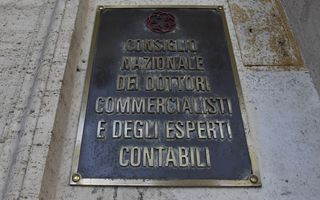(Finance) – Il National Council of Accountants approved today the new Sanctions Code, which will come into force tomorrow 18 April. The previous one dates back to 2016. The new text comes after the new Code of Conduct had also been approved in recent weeks, the innovations of which have now also been expressed in terms of sanctions. The main innovation concerns the sanctions relating to violations of the rules on fair compensation. For both of the two possible violations (i.e. if the professional agrees an unfair compensation with the client or if he prepares an agreement without informing the client of the obligation to comply with the relevant provisions) censure is foreseen.
In the case of exercise of the profession in situations of incompatibility suspension of up to one year is foreseen. In terms of insurance obligation, a suspension of up to 6 months is foreseen for those who do not take out a policy, while failure to communicate to the customer the details of the signed policy is subject to the sanction of censure.
In the case of multiple contemporary ethical violations or deriving from the same fact, the sanction envisaged for the most serious violation is expected to be applied.
In the event that, in relationships with clients, the professional asks for or receives from colleagues commissions or benefits for the presentation of a client or for the proposal of assignments, the suspension of up to three months applies. However, anyone who suggests fraudulent behavior will be subject to suspension of up to one year. For all violations regarding advertising and improper use of professional titles, the sanction of censorship applies. As for the chapter of criticism via social media, following the modification of the ethical provision, we move from the previous sanction of censure to a suspension of up to a maximum of three months.
“The approval of the new Sanctions Code – comments the president of the National Council of the category, Elbano de Nuccio – is the stage following the approval of the new Code of Ethics, of which it photographs all the main innovations. We are therefore adding a new step to this process of renewing our codes to increasingly encourage correct and respectful behavior between colleagues, towards institutions and towards our customers”.
For the delegate for professional compensation and ethics, Pasquale Mazza“this new Code constitutes an important step forward for the profession. The hope is that, together with the Code of Conduct, it can contribute to adopting virtuous behaviors without the need to activate it”.
